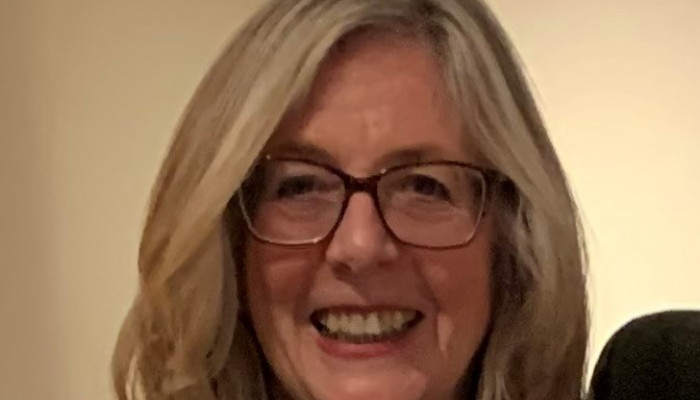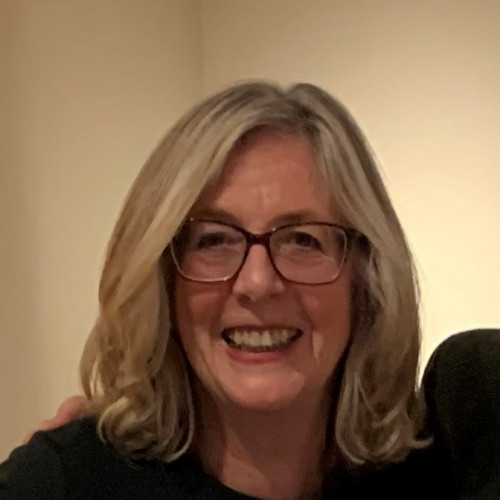Candidates to the ESC board, 2023: Michele Burman - Election of ESC President

Whilst it came as a surprise to me, I am very pleased and honoured to be nominated for the role of ESC President.
The ESC is very close to my heart. I have participated in all but one of the ESC annual conferences since the first one held in Lausanne in 2001 and, since 2010 I have co-convened, with Loraine Gelsthorpe, the ESC Working Group on Gender, Crime and Justice. Over the 22 years since I joined the ESC, I have witnessed the marked expansion and diversification of the criminological community of Europe. I have made many good friends and forged many productive research collaborations. I have had the privilege to learn about criminology and criminological research from many colleagues across Europe. Today, the ESC, through its members, embodies some of the most exciting criminological research, teaching and practice in the world and has made strong contributions to scholarly thinking and understandings of contemporary society. I am very proud to be a member of that community and would be delighted to serve and represent the ESC as President.
My own research interests are concerned with social inequalities and social justice (broadly defined). Informed by feminist theory and praxis, my work centres on gender and justice and has led to widely cited publications and has had an impact on policy, legislation and practice, e.g., informing revisions to the law of evidence in rape and the policing of crimes of violence against women and children. I use both qualitative and quantitative methods and have a strong public engagement portfolio. I am passionate about promoting criminological research for public benefit, especially in the translation of research to non-academic audiences towards goals of social justice and greater social equality.
I bring strategic leadership experience and academic credibility to the role. I am a Professor of Criminology at Glasgow University in Scotland, with a BA in Sociology and Psychology from the University of Cape Town; a BA. Hons. in Clinical Psychology from UNISA; an MSc in Criminology and Criminal Justice, and; a PhD in constructions of consent, credibility and character in sexual offence trials from University of Edinburgh. I have considerable experience of academic leadership including, from 2015 to 2019, as Head of a large and complex School of Social and Political Sciences comprising over 300 staff and 5,000 students, as a former Director of Research, a Chair of the Social Sciences Ethics Committee, and a member of numerous university leadership working groups and committees. I have held several governmental advisory and consultancy roles, e.g., on policies concerning prostitution; victim’s rights, women’s imprisonment, consent (Scottish Government), youth justice (Northern Ireland), and restorative juvenile justice (European Commission) and acted as an expert for parliamentary committees of inquiry on domestic abuse, community sanctions, and sexual offences. I have extensive experience working with schools, community groups and charitable trusts, e.g., board member of the Ethnic Minority Law Centre 2008 to 2015, Scottish Women’s Rights Centre 2015- present, and chair of Women’s Support Project, 2008 -present.
With Richard Sparks and Gill McIvor, I am a Founding Co-Director of the Scottish Centre for Crime and Justice Research (SCCJR), a cross-institutional research collaboration between the Universities of Glasgow, Edinburgh, Stirling, Strathclyde and Edinburgh Napier. I led SCCJR for 10 years from 2006 until 2016 as coordinator with overall responsibility for day-to-day management, co-ordination of research and KE activities, budgeting and finances and liaison with external partners. Now in its 17th year, I am immensely proud of SCCJR as it has grown to become one of the largest criminological research centres in Europe as evidenced by its large staff base, far-reaching research programme, high levels of public engagement and large and diverse doctoral student community.
I have participated as partner or coordinator in 45 research projects and successfully mentored 16 doctoral students to completion of their PhD degrees. I view criminology as an area best served by multi- and inter-disciplinary research and collaborations, and I endeavour to work in this way, most recently as a partner in the European Commission project Improving Frontline Responses to Domestic Violence (IMPRODOVA), working with law enforcement, medics, lawyers, NGOs and policymakers in eight European countries. My work is financed by national (e.g., Economic and Social Research Council; British Academy; Nuffield Foundation; Wellcome Trust, Equalities and Human Rights Commission) and international (e.g. European Commission; Calouste Gulbenkian Foundation) funders.
From 2015 to 2020, I was Co-Editor-in-Chief of Criminology and Criminal Justice (the official journal of the British Society of Criminology). I served as a criminology expert member in the UK’s Research Excellence Framework (REF) subpanel on Social Policy & Social Work in both REF 2014 and REF 2021. I was elected as Fellow of the Royal Society of Edinburgh (FRSE) 2017 and Fellow of the Academy of Social Sciences (FAcSS) 2018. In the Queen’s Birthday List 2019 I was awarded a CBE for Services to Criminology.
Key among the many things I learnt in my leadership roles are: the importance of robust structures (appropriate governance, clear objectives, designated responsibilities, strong, open mechanisms for communication); the need for altruistic leadership in prioritising collective needs, and the importance of understanding how different partners can contribute and work together to achieve common goals. My approach is collaborative, inclusive and hands-on, and aims to build trust, manage relations, and connect people to make things happen. If elected, I would relish the opportunity to support the objectives listed in the ESC’s constitution (e.g., bringing together criminologists in one multi-disciplinary society; fostering criminology, encouraging exchange and cooperation, acting as a forum for the dissemination of knowledge) to ensure the ESC remains an open and inclusive environment fostering ideas and links across borders. Recognising that our current volatile research environment particularly affects early career researchers and doctoral students, a key ambition would be to facilitate the career development of this important body of researchers. With the expansion of the ESC criminological base comes opportunities and challenges, including the risk of fragmentation. If elected, I would endeavour to amplify the conversations within criminology as a whole to nurture knowledge sharing across subdisciplinary boundaries to ensure that criminological expertise continues to support responses to the complex, dynamic and rapidly evolving societal changes we face.
